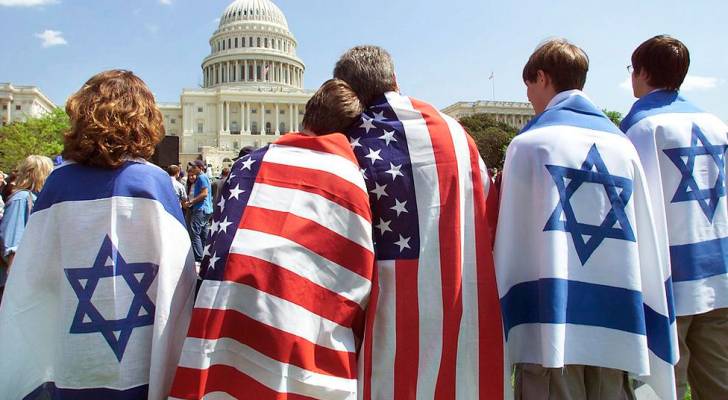Majority of American Jews say ‘Israel’ has committed war crimes in Gaza
A newly released Washington Post-Ipsos poll has delivered a jarring verdict on the state of American Jewish opinion, revealing a crisis within the community over ‘Israel’s’ two-year-long assault on the Gaza Strip.
The poll, conducted in September 2025, found that a significant majority—61 percent of American Jews surveyed—believe ‘Israel’ has committed war crimes during the aggression.
Read more: 60% of American Gen Z support Hamas over ‘Israel’: Harvard/Harris poll
Further deepening the internal rupture, approximately four in ten Jewish Americans, specifically 39 percent, contend that 'Israel' is guilty of genocide against the Palestinians.
An Indictment of US and ‘Israeli’ Leadership
The political implications of the poll are equally explosive, extending the culpability finding to Washington.
A clear 61 percent majority of American Jews holds the US government responsible for the continuation of the war.
This suggests a widespread conviction that unconditional US political and material support, including the ongoing USD 3.3 billion annual military aid commitment, is enabling the devastating consequences.
While 91 percent of American Jews hold Hamas responsible for the war’s continuation (and 94 percent say Hamas has committed war crimes), Prime Minister Benjamin Netanyahu is held directly responsible by 86 percent of the community.
Netanyahu is clearly the most negatively viewed ‘Israeli’ figure among American Jews, with 68 percent giving him negative marks for his leadership of ‘Israel’.
The Erosion of Conditional Support
While American Jews remain marginally more supportive of ‘Israel’s’ military actions than the general US public; they are nearly evenly divided on approval (46 percent approving and 48 percent opposing), versus 32 percent approval among the general American public – the nature of the dissent is unprecedented.
The shift, according to follow-up interviews, began as the conflict moved from an initial response to what they say is an existential threat to a prolonged engagement.
One respondent noted that initial support was rooted in necessity ("Initially, Israel in a sense had no choice..."), but that conditional approval eroded rapidly due to accumulating reports of humanitarian suffering and immense Palestinian casualties.
As the respondent concluded: "But in no way does that justify what is happening now".
The willingness of nearly four in ten Jewish Americans to use the term "genocide" against the Jewish state, a term profoundly shaped by the Holocaust, is widely interpreted as a powerful signifier of unjustifiable military overreach and extreme moral revulsion at the scale of Palestinian suffering, aligning with sentiments in the broader American electorate where 45 percent of all voters believe ‘Israel’ is committing genocide.
Deep Division Along Generational and Educational Lines
- Education: The opposition is concentrated among the highly educated. Only 36 percent of American Jews with a postgraduate degree approve of ‘Israel’s’ actions, while a decisive 60 percent oppose them. This is nearly a complete reversal from those with less education, where 54 percent approve.
- Denomination: The Conservative Jewish movement remains highly supportive, with 63 percent approving of ‘Israel’s’ actions. However, the largest American Jewish denomination, the Reform movement, is internally fractured, with a slight majority of 52 percent opposing ‘Israel’s’ actions.
- Identity: Support strongly correlates with religious identity. Among those who say being Jewish is "very important," 63 percent approve of the actions, but among those for whom being Jewish is "not too" or "not at all important," 63 percent oppose them.
This data maps the conflict onto broader American political currents. As the Democratic Party has moved left on foreign policy, liberal, educated Jewish voters feel increasing pressure to prioritize universalist human rights critiques over unconditional loyalty, a trend accelerated by Netanyahu’s political alignment with former President Donald Trump.




